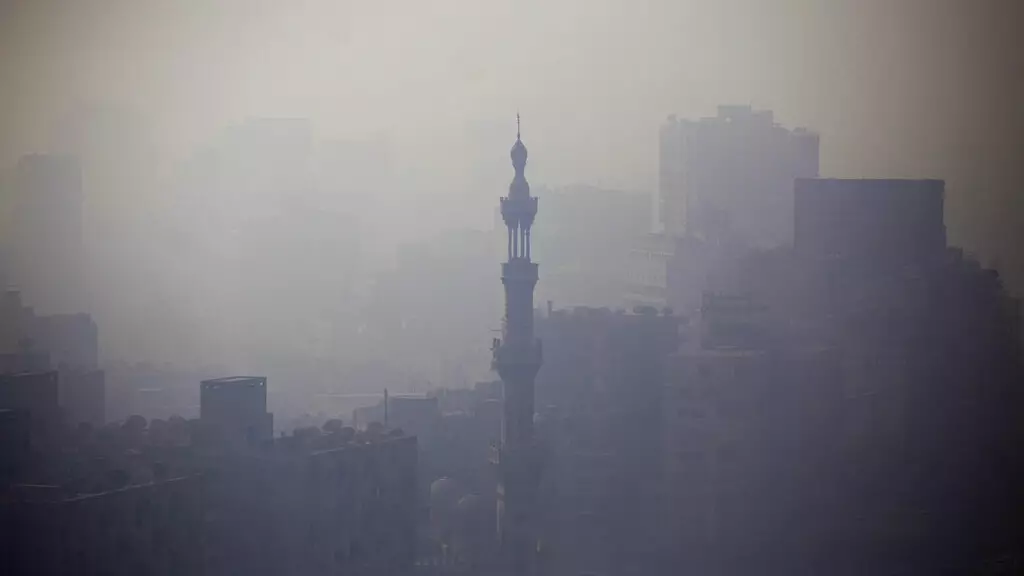
5 Steps to Build an Effective CSR Strategy
In today’s business landscape, Corporate Social Responsibility (CSR) has evolved from being a “nice-to-have” to ...

An international report called on African governments could prevent 200,000 premature deaths per year by 2030 and 880,000 deaths per year by 2063; reduce carbon dioxide emissions by 55%, methane emissions by 74%, and nitrous oxide emissions 40% by 2063; improve food security by reducing desertification and increasing crop yields for rice, maize, soy, and wheat; and contribute significantly to global efforts to keep warming below 1.5°C, limiting the negative effects of regional climate change.
An Integrated Assessment of Air Pollution and Climate Change for Sustainable Development in Africa released by the Climate and Clean Air Coalition (CCAC), the United Nations Environment Program (UNEP), and the African Union Commission shows how African leaders can act quickly across 5 key areas—transport, residential, energy, agriculture, and waste—to fight climate change, prevent air pollution, and protect human health.
“Air pollution is a climate and health emergency, in Africa and around the world. By cutting short-lived climate pollutants, we can slow down the worst effects of climate change in the very near term while protecting human lives. We must come together to work with African nations to reduce emissions from short-lived climate pollutants and eliminate air pollution as much as possible this decade,” said Inger Andersen, Executive Director of UNEP.
Air pollution is the one of the greatest environmental threats to human health and is responsible for about 7 million deaths each year globally. Air pollutants and greenhouse gases often share the same sources and drivers, including fossil-fuel driven economic growth. Some pollutants, including methane and black carbon, directly contribute to both impacts simultaneously. And because Africa is particularly vulnerable to climate change, preventing emissions from short-lived climate pollutants, like methane and black carbon, will help both save lives and protect the environment.
“Air pollution and climate change are a deadly duo, and must be tackled together,” said Soipan Tuya, Cabinet Secretary for Environment and Forestry, Government of Kenya. “We welcome the release of this Assessment and its findings, which demonstrate how Kenya and African nations can achieve the air pollution and climate goals without compromising on the livelihoods and development objectives of the continent” she added.
The Integrated Assessment of Air Pollution and Climate Change for Sustainable Development in Africa is the first-ever integrated assessment of air pollution and climate change for the continent and provides a robust scientific basis for action towards clean air in Africa. The report was developed by a pan-African team of researchers with contributions from international scientists and experts, coordinated by CCAC partner Stockholm Environment Institute (SEI). The Assessment’s recommendations are closely aligned with key priorities of Agenda 2063 and with the goals and targets of the Sustainable Development Goals (SDG). Nearly all the recommendations can be found in at least one African Nationally Determined Contribution (NDC) and are currently identified as contributing to achieving national climate change mitigation goals.
“This Assessment shows that Africa has a huge opportunity to continue developing sustainably, improve human well-being, and protect nature by investing in solutions to fight climate change and air pollution together,” said H.E. Amb Josefa Sacko, Commissioner of Agriculture, Rural Development, Blue Economy and Sustainable Environment, African Union Commission. “We look forward to working with countries and funders to develop the AUC’s Clean Air Program for implementation of the Assessment measures, as supported by the African Ministerial Conference on the Environment,” she added.
The Assessment demonstrates a sustainable path forward, despite the huge increases in economic activity, urbanization, and population that will accompany development.
Across five key areas, the Assessment suggests 37 measures that are cost-effective and proven, including shifting to cleaner vehicles and to safe and affordable public transport, as well as safe cycling and walking.
The report also suggests transitioning to sustainable clean cooking and efficient household appliances for refrigeration and air conditioning in the residential sector.
The measures also include moving to renewable energy and increasing energy efficiency, capturing methane from oil, gas, and coal, and drastically reducing other GHG and SLCP emissions.
They also include reducing methane emissions from agriculture with better livestock and manure practices, reducing crop losses and food waste, and promoting healthy diets.
The report also calls for developing better waste management systems, generating less organic waste, and reducing open burning
It also urges African nations are responsible for a small fraction of global greenhouse gas emissions but bear an outsized burden of negative climate impacts. Importantly, the Assessment shows that countries outside of Africa must drastically reduce their own emissions to limit warming to 1.5°C, help Africa avoid the worst impacts of climate change, and reduce the cost of adaptation. Scientific, business, finance, non-state actors, governments, development, and other actors must join forces to pool resources and implement the Assessment’s measures to achieve significant, impactful change.
“This assessment comes at a timely moment, as COP27 is focused on implementation,” said Måns Nilsson, Executive Director, Stockholm Environment Institute (SEI). “Through this report, African governments, the private sector, non-governmental organizations, and local communities now have the scientific evidence on different options for action that can enable the continent to meet its development objectives while mitigating pollution and GHG emissions,” he added.
Without changes in policy, the Assessment finds that greenhouse gas emissions will triple by 2063, causing a ripple effect: outdoor air pollution will get worse, causing about 930,000 premature deaths per year in 2030 and about 1.6 million premature deaths per year in 2063. Without action, pressures on resources, the environment, and human health could increase inequalities and limit Africa’s ability to achieve sustainable development.
اترك تعليقا